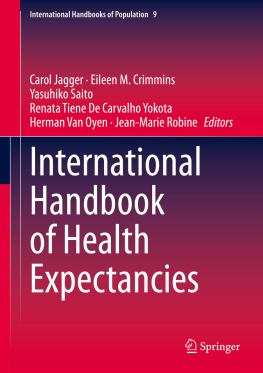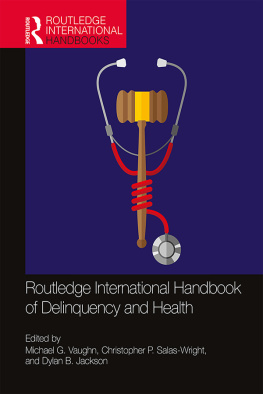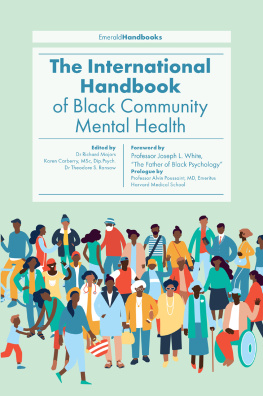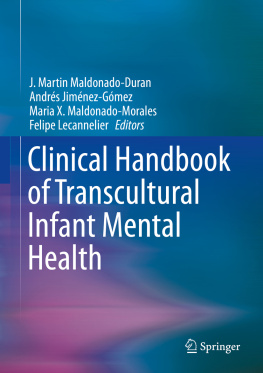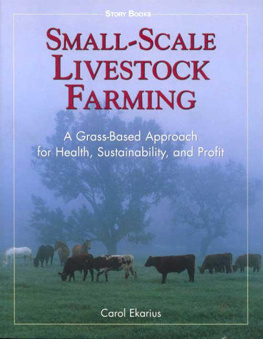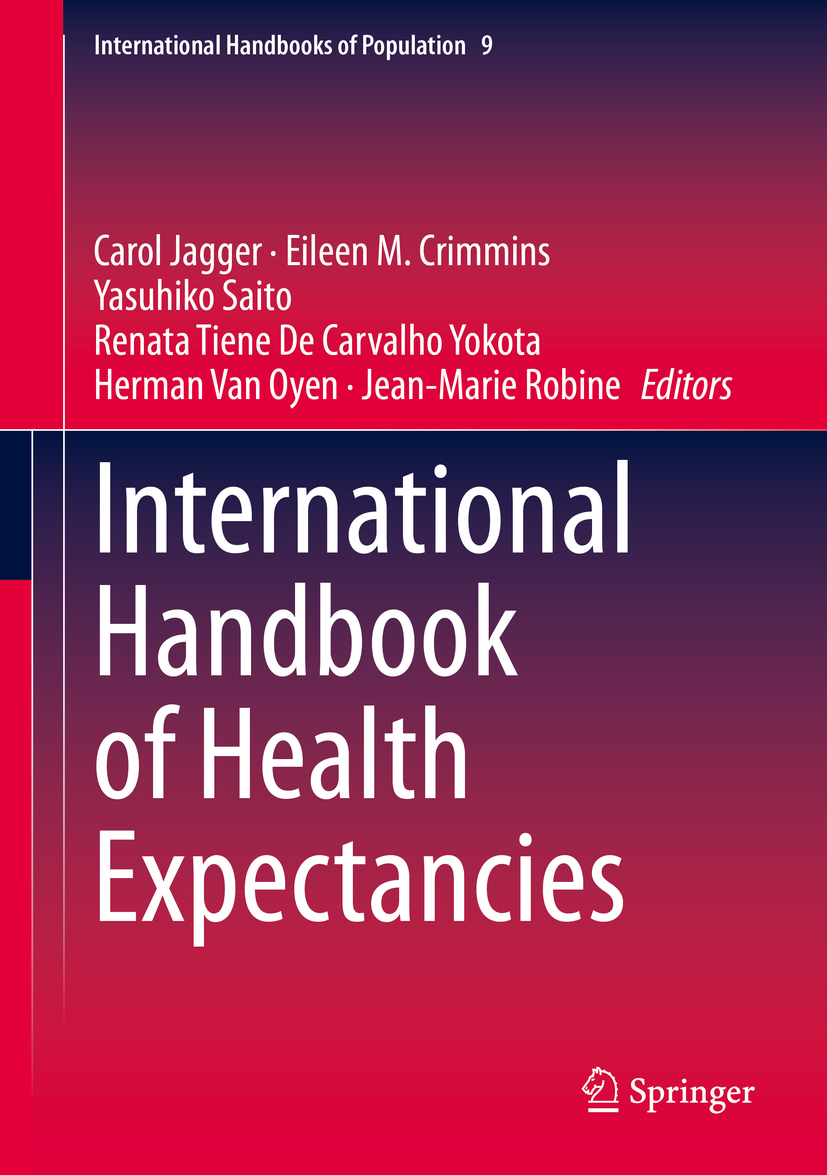Volume 9
International Handbooks of Population
Series Editor
Dudley L. Poston Jr.
Dept. Sociology, Texas A & M University, College Station, TX, USA
TheInternational Handbooks of Populationoffer up-to-date scholarly summaries and sources of information on the major subject areas and issues of demography and population. Each handbook examines its particular subject area in depth, providing timely, accessible coverage of its full scale and scope, discusses substantive contributions for deeper understanding, and provides reliable guidance on the direction of future developments.
Volumes will explore topics of vital interest: Population Aging, Poverty, Mortality, Family Demography, Migration, Race and Ethnic Demography and more. Each volume will provide a state-of-the-art treatment of its respective area. The series will quickly prove useful to a broad audience including demographers, practitioners and scholars across a range of disciplines.
More information about this series at http://www.springer.com/series/8111
Editors
Carol Jagger
Population Health Sciences Institute, Newcastle University, Newcastle-upon-Tyne, UK
Eileen M. Crimmins
Davis School of Gerontology, University of Southern California, Los Angeles, CA, USA
Yasuhiko Saito
College of Economics, Nihon University, Tokyo, Japan
Renata Tiene De Carvalho Yokota
Department of Epidemiology and Public Health, Sciensano, Brussels, Belgium
Department of Sociology, Interface Demography, Vrije Universiteit Brussel, Brussels, Belgium
Herman Van Oyen
Department of Epidemiology and Public Health, Sciensano, Brussels, Belgium
Department of Public Health and Primary Care, Ghent University, Ghent, Belgium
Jean-Marie Robine
Institut national de la sant et de la recherche mdicale (Inserm) and Ecole pratique des hautes tudes (EPHE), Paris, France
ISSN 1877-9204 e-ISSN 2215-1877
International Handbooks of Population
ISBN 978-3-030-37666-6 e-ISBN 978-3-030-37668-0
https://doi.org/10.1007/978-3-030-37668-0
Springer Nature Switzerland AG 2020
This work is subject to copyright. All rights are reserved by the Publisher, whether the whole or part of the material is concerned, specifically the rights of translation, reprinting, reuse of illustrations, recitation, broadcasting, reproduction on microfilms or in any other physical way, and transmission or information storage and retrieval, electronic adaptation, computer software, or by similar or dissimilar methodology now known or hereafter developed.
The use of general descriptive names, registered names, trademarks, service marks, etc. in this publication does not imply, even in the absence of a specific statement, that such names are exempt from the relevant protective laws and regulations and therefore free for general use.
The publisher, the authors, and the editors are safe to assume that the advice and information in this book are believed to be true and accurate at the date of publication. Neither the publisher nor the authors or the editors give a warranty, expressed or implied, with respect to the material contained herein or for any errors or omissions that may have been made. The publisher remains neutral with regard to jurisdictional claims in published maps and institutional affiliations.
This Springer imprint is published by the registered company Springer Nature Switzerland AG.
The registered company address is: Gewerbestrasse 11, 6330 Cham, Switzerland
Preface
In 1989, an international group of researchers met together to discuss health expectancy, and so the International Network on Health Expectancy and the Disability Process, known by its French acronym REVES, was born. Over the years following, REVES met at least annually but was a closed network. Then, in 1991, the meeting in Leiden was open to any researcher interested in the topic, and REVES has continued to grow from then on.
In the early years of REVES, subgroups were formed to focus on the key issues around the, then relatively new, population health indicator: conceptual harmonization, methods, and policy relevance. Although the subgroups no longer exist, these three issues have remained the primary focus of REVES. The first book on health expectancy,Determining Health Expectancies, was published in 2003 and catalogued research from the first 10 years of the REVES network. It has become a key reference for teaching and research on this topic. A few years ago a group of us decided it was time for a second book since the quantity and quality of research had grown so much. So, here is theInternational Handbook on Health Expectancies.
We have structured the book into four parts, reflecting, as in the first book, the three pillars of the REVES Network but also, in the final section, adding important new research areas on this topic. Many chapters provide in-depth reviews of the literature on, and look forward to future developments in, the specific area. In Part I,Monitoring Trends and Gaps, Chap.).
Developing and disseminating methods have always been one of the pillars of the REVES network, and Part II,Advances in Data and Methodology, addresses the progress made since the first book. Chap.describing this method to produce forecasts of health expectancies.
The REVES network has always seen the relevance for public health policy of a population health indicator that reflects both the quality and quantity of remaining life, rather than just the quantity. Part III,Quantity and Quality of Life: Synergy or Trade-off, reflects the importance of this topic. Chap.).
Part IV,Assessing New Dimensions, comprises six chapters on new dimensions of health or new thoughts on existing ones. The disablement process, rather than health expectancy per se, is the focus of two chapters: Chap.).
The final chapter in theInternational Handbook on Health Expectanciesbrings an overall conclusion and consolidation of the research and looks ahead to where future developments in health expectancy might lie. We hope this book will become, as the first book, a key teaching and research tool for current and future generations, as well as for those already well-versed in health expectancies and those new to the topic.
Carol Jagger
Eileen M. Crimmins
Yasuhiko Saito
Renata Tiene De Carvalho Yokota
Herman Van Oyen
Jean-Marie Robine
Newcastle-upon-Tyne, UK Los Angeles, CA, USA Tokyo, Japan Brussels, Belgium Brussels, Belgium Montpellier Cedex 5, France

